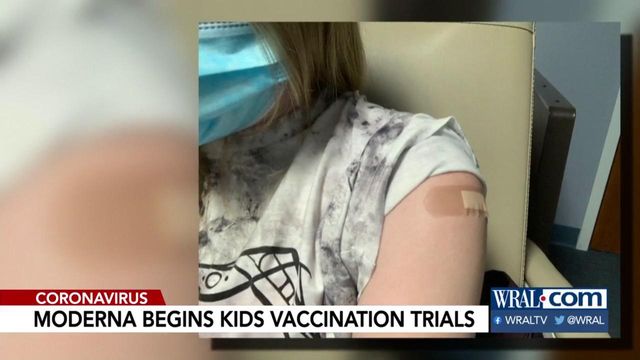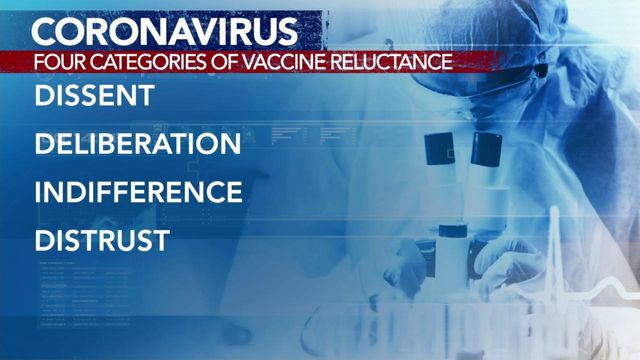ECU doc: Vaccine makers progress with care in testing vaccines in kids
A Duke Health spokeswoman said they are not participating in the Moderna trial, but Duke expects to begin enrolling children between the ages 5 and 11 in a Pfizer vaccine trial by the end of the month.
Posted — UpdatedThe first children have been vaccinated in Moderna's Phase 2/3 pediatric Covid-19 vaccine trial, the company announced Tuesday in a statement.
The clinical trial, called the KidCOVE study, will enroll approximately 6,750 children in the US and Canada between the ages of 6 months and 11 years old.
Duke Health spokeswoman Sarah Avery said they are not participating in the Moderna trial. UNC Health and Wake Research representatives also told WRAL News they are not participants in Moderna trials for children.
Avery said a Duke trial of a Pfizer vaccine is expected to be extended to begin enrolling children between the ages 5 and 11 by the end of the month. Duke has been testing Pfizer vaccine on children as young as 12 since December.
Dr. Richard Chung, whose son participated in that trial, said it included about 2,000 participants.
Dr. Rachel Roper, professor of biology and immunology professor at East Carolina University, said the vaccine is important to protect children from COVID-19's severe effects.
"A lot of people don't think COVID can affect children, but it really does," Roper said. "Almost 7% of children who get COVID get hospitalized and, of those, almost a third go into intensive care."
She supports a strategy of gradually introducing small doses of vaccine and advancing trials to younger and younger children, down to six months.
"Children aren't just small adults," she said. "They have different physiology. And then also you have to figure out what dose that they need because they have smaller bodies."
The new Moderna trial follows that logic. It is broken into two parts. In part one, different dosages of the vaccine are being tested on the children. Children between the ages of 6 months and 1 year old will receive two doses of the vaccine spaced about 28 days apart at either a 25 or a 50 or a 100 microgram level. Children between the ages of 2 and 11 will receive two doses of the vaccine spaced about 28 days apart at either a 50 or a 100 microgram level.
The findings of part one will be used to determine which dose will be used in part two. For part two, the trial will expand to include children who are given a saline placebo, which does nothing. The children will be followed for 12 months after their second injection.
Moderna is doing the tests to see if the vaccine protects children from getting sick if they come into contact with coronavirus, according to the clinical trial's patient information website.
"We are pleased to begin this Phase 2/3 study of mRNA-1273 in healthy children in the U.S. and Canada," Moderna CEO Stéphane Bancel said in a press release. "This pediatric study will help us assess the potential safety and immunogenicity of our COVID-19 vaccine candidate in this important younger age population."
The study is being conducted in collaboration with the National Institute of Allergy and Infectious Diseases at the National Institutes of Health, and the Biomedical Advanced Research and Development Authority at the US Department of Health and Human Services.
In December, the US Food and Drug Administration authorized the emergency use of Moderna's Covid-19 vaccine for adults and of Pfizer/BioNTech's Covid-19 vaccine for people ages 16 and older.
In February, the FDA authorized the emergency use of Johnson & Johnson's vaccine for adults 18 and older.
Related Topics
• Credits
Copyright 2024 by WRAL.com and CNN. All rights reserved. This material may not be published, broadcast, rewritten or redistributed.






